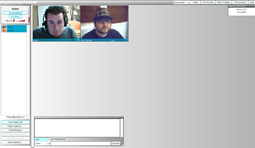When a loved one is suffering from an addiction everyone who cares about the individual is impacted. Our Intervention services are designed to help all of those in need. At East Coast Recovery Services there are several intervention services available depending on the need of the identified person or family. As with any disease process the earlier we begin to intervene the more options we have. Our intervention services are designed to help family members understand a better way to communicate the need for a person to get help for themselves. We do not consider physically forcing someone to go and get help or demanding that someone get help as intervention. If you can do that you do not need our services.
A person does not have to "want" help in the beginning of an intervention process. The nature of an intervention is to help someone who is unable to make a rationale decision because of the nature of addiction's impact on the thinking process make better decisions about their need for help. A formal intervention is a single event designed for people to share their concerns and help the person obtain the help they need to address addiction and other issues that are hurting them.
At East Coast Recovery Services an intervention is a well-developed, caring, and purposeful event or series of actions through which people are able to share their concern and stop enabling a person's decline into addiction. Intervention is an act of love. It is our experience that successful interventions done with dignity and respect result in the addicted individual continuing to work with the intervention providers and often time being grateful for the intervention.
An intervention as any action or behavior that is done in order to make someone uncomfortable with their use of mood altering chemicals or behaviors. It is often also associated with allowing a crisis to follow it's natural course for the addicted individual. When family members and friends begin utilizing intervention methods, the goal is for the addicted individual to start looking at themselves and get the help they need.
Intervention methods have been developed to help the addicted person not to hurt them. That being said sometimes, because of human nature, people do not learn without feeling the pain or consequences of their behavior. Concerned individuals do not have to create consequences they just have to stop fixing the natural consequences that happen to an addicted individual.
It also means that the concerned individuals have to stop believing that the addicted individual is thinking with a rationale mind. The addicted individual is suffering from an illness that affects their ability to think rationally. Those living with this problem can begin developing their own denial system in order to deal with the pain of this affliction. In these cases they will need to re-evaluate how they are looking at addiction and how they may be inadvertently enabling the addicted individual.
Enabling can be identified as well intended people trying to
help the addicted individual but in the process they help the
addicted person continue their acting out behaviors.
While the primary goal of the intervention is to get the addict
into treatment it also leads to positive changes for the other
participants who gain a better understanding of what they are
dealing with. Many times in this process the participants see the
need for taking care of themselves and even getting help for
themselves regardless of what the addicted person does. Most
participants find the following benefits:
- A sense of relief that stems from finally addressing their loved one's problem
- A feeling of unity in having faced this situation together
- New ways of coping and communicating
- The ability to stop enabling the addict and regain control of their lives
- The comfort of knowing that they did everything that they could do
The timing of an intervention is important, waiting too long can have disastrous results. All too often an early intervention could have positive results, many fear utilizing interventions.
Although each intervention has different circumstances, the intervention process is the same. It does not matter if the addict is using alcohol, pot, cocaine, heroin, abusing prescription pills or has an active eating disorder, is addicted to gambling, working, shopping, sex, etc. There is hope.
The first step to a well-planned formal intervention is to have an assessment meeting at which time critical information is explored as to the concerns and fears about the identified individual, the family, and the complicating factors that need to be addressed in order to increase the odds of successfully getting the identified individual into the appropriate level of treatment. During this meeting we can identify the most appropriate intervention services to utilize and develop a plan of action to begin addressing the problem.
The next step is to have a meeting with all the participants and rehearse the intervention. To help everyone in creating an atmosphere of dignity and respect, all participants write letters in a certain manner that will allow the addicted individual to see how much people really care about them and choose to take the gift of help being offered.
A formal intervention can be done immediately. For example if someone you care about has been hospitalized for liver problems connected with their drinking. We can work to do a formal intervention immediately to get the person the help they need. Generally speaking a formal intervention can take one to two weeks from the time of the call to the actual intervention day. During this time, many hours are spent in planning and preparing with the family prior to the actual intervention. This preparation time is crucial for the success of the intervention since so much is at stake during this process. Every intervention has it's own set of complicating factors of finances, logistics, and scheduling.
The actual intervention usually takes about an hour, and often the addict agrees to go immediately to treatment. The goal of the intervention is to get the person's agreement to accept the gift of help being offered at that time. Arrangements have been made ahead of time and when possible the person's bag is already packed so all they have to do is get into the car and go to treatment provided.
Assessments are done by Brian Halstead, Certified Addictions Counselor (CADC, CIP) Brian has over 23 years' experience in assessing and treating addicted individuals and their loved ones. Brian's knowledge of the subtle nuances in treatment modalities enables him to make recommendations that are exceptionally effective. The ECRS team includes Certified Addictions Counselors (CAC), Certified Alcohol Drug Counselors (CADC), Interventionists, Recovery Care Specialists and Recovery Coaches. Our network of professional Allies in Recovery includes Family Therapists, Couples Counselors, Psychiatrists, Psychologists, Medical Doctors and many other health and wellness practitioners.
Although we do one time assessments our philosophy is that an assessment is only current on the day of the assessment. We continue to assess our clients while engaged with us and change Recovery Plans according to the needs of our clients. We make referrals as needed so our clients have the best chances for continued recovery.
Recovery Plans include goals and purposeful plans of action designed to achieve them. Our Recovery Care Specialists work closely with clients to develop their Plans and help ensure that pursuits are fueled by healthy motivation and built upon firm, well thought out, foundations. They hold clients accountable for following through with their plans by following up with them individually and in facilitated peer support groups.
Recovery Plans focus on the following issues:
- Recovery from Chemical Dependency
- Recovery from Mood Altering Behaviors
- Personal Goals in Recovery
- Mental Health Issues
- Recovery from Co-Occurring Issues
- Living Arrangements
- Financial
- Leisure & Recreation
- Employment
- Relationships
- Legal Issues
- Social Supports
- Education
- Medical and Health
Individual Counseling is one-on-one between a professional counselor and a person seeking help with their addiction or the addiction of a loved one. Issues that are typically addressed in counseling are:
- Experiencing Recovery
- Co-dependency
- Feelings/Emotions Management
- Abuse
- Anger Management
- Relapse Prevention
- Recovery from Relapse
- Gender Specific Issues
- Aftercare
- Nicotine Addiction
Counseling Groups at East Coast Recovery Services is a process where a small number of people meet together with a professional counselor (facilitator) to discuss specific issues. A great benefit to Group Counseling participants is that they are able to relate to others who have shared similar feelings, behaviors and situations. Groups provide validation and support for participants who otherwise might feel alone with their addiction struggles. As the group progresses, familiarity develops into friendships that often prove to be lifesavers, particularly in the event that the compulsion to drink or use drugs arises again in a sufferer's life.
Peer Groups at East Coast Recovery Services is a process where a number of people meet together with a Recovery Coach who monitors the progress of the participants in these groups. The recovery coach may have specific topics for the group members to focus on with while educating the group members about recovery issues. During process groups each participant of the group is responsible to share honestly with each other the progress they are making in their recovery plans. Peers are also expected to give honest feedback to other group members.
What Is Coaching?
Coaching is a newer profession synthesized from the best of psychology, business, philosophy, spirituality and finance to benefit individuals who want to grow. Utilizing a coach is about change. Coaches focus on the present and what to do next. People in recovery utilize specially trained coaches to help identify and achieve goals while they are developing a lifestyle free from mood altering behaviors.
Why Does Coaching Work?
Synergy - Client and coach become a team,
focused on the client's goals and needs.
Structure - Client's take more action, think
bigger and get the job done because the plan is well-thought out
and the coach provides accountability.
Expertise - Coaches know how to assist clients in
making better decisions and setting goals that are attainable and
aligned with their values.
Who Works with a Coach?
Anyone seeking self-knowledge/improvement, change and/or fulfillment.
What to Look for in a Coach
The right coach consistently brings out the best in you. Just as one would hire a basketball coach to improve their basketball game, one should seek a coach that has demonstrable success in the area in which the individual would like to grow. The right coach will:
- Have a track record of helping individuals like you accomplish the goals you want
- Help you think positively and be motivated to act
- Keep up with and go ahead of you when it's time to grow
How Does Coaching Work?
Coaching at ECRS is delivered by agreement through weekly sessions in person, by video conferencing, or by phone. Clients bring an agenda to the session. The coach helps to solve problems and make the most of opportunities. When dealing with large goals, the coach helps design the project and provides the support and structure needed to make sure it gets done. Coaches bring out the client's best by offering advice, expecting a lot, helping strategize and celebrating wins.
How Do I Get Started?
If you think this type of relationship could work for you, call 610-621-5223 and talk with an ECRS coach. The next step would be to schedule a meeting where you get to know one another. You will receive a Welcome Packet by mail with a checklist and assessment materials. To make the most of your first meeting, you will want to complete the packet and bring it with you. During the initial meeting, the coach will want to hear about your needs, problems and goals. You will want to know what the coach has to offer. At the end of this meeting, both you and the coach decide if it's a match.
Coaching FAQs
For a list of Frequently Asked Questions, click here.
Scheduled Events & Workshops?
There are no events scheduled at this time.




